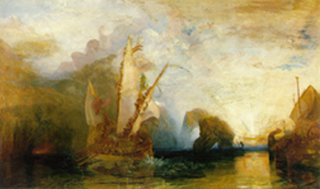Course Description
As we read broadly from throughout the vast chronological period that is “Homer to Dante,” we will pepper our readings of individual ancient and medieval texts with broader questions like: what images, themes, and philosophical questions recur through the period; are there distinctly “classical” …
As we read broadly from throughout the vast chronological period that is “Homer to Dante,” we will pepper our readings of individual ancient and medieval texts with broader questions like: what images, themes, and philosophical questions recur through the period; are there distinctly “classical” or “medieval” ways of depicting or addressing them; and what do terms like “Antiquity” or “the Middle Ages” even mean? (What are the Middle Ages in the “middle” of, for example?) Our texts will include adventure tales of travel and self-discovery (Homer’s Odyssey and Dante’s Inferno); courtroom dramas of vengeance and reconciliation (Aeschylus’s Oresteia and the Icelandic Njáls saga); short poems of love and transformation (Ovid’s Metamorphoses and the Lais of Marie de France); and epics of war, nation-construction, and empire (Homer’s Iliad, Virgil’s Aeneid, and the Anglo-Saxon Beowulf).
Course Info
Instructor
Departments
Learning Resource Types
assignment
Written Assignments

Turner, Joseph Mallord William. “Ulysses deriding Polyphemus - Homer’s Odyssey.” 1829, oil on canvas, National Gallery, London. (Photo courtesy of Mark Harden.)










